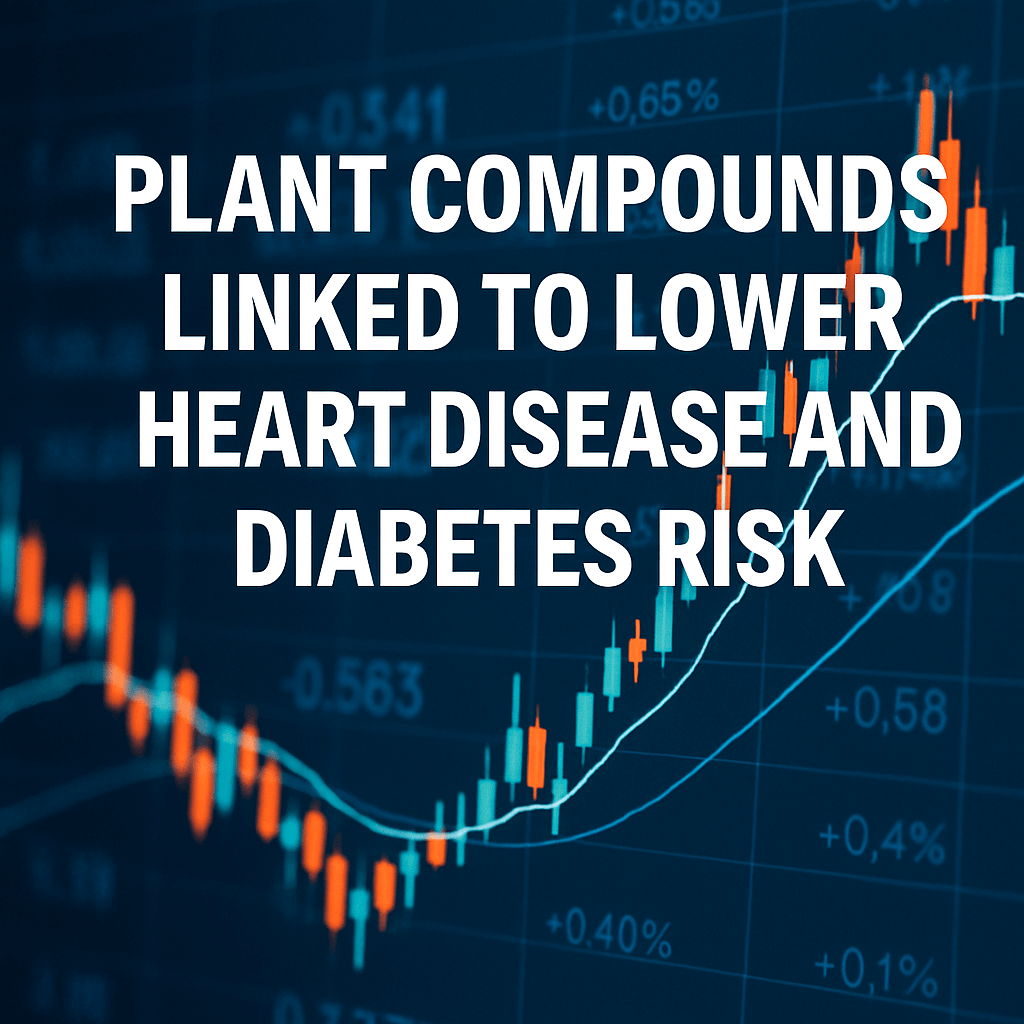Plant Compounds Linked to Lower Heart Disease and Diabetes Risk

A plant-focused diet, rich in various whole foods, is increasingly backed by scientific evidence for its extensive health benefits. Recent findings presented at the American Society for Nutrition’s conference in Orlando illustrate this further, highlighting the potential power of phytosterols – plant-derived compounds that can significantly influence heart health and metabolic function.
The Health Benefits of a Plant-Based Diet
Nutritionists and health advocates have long championed a diet abundant in fruits, vegetables, whole grains, nuts, and seeds. These foods contain a myriad of bioactive compounds, particularly antioxidants and phytosterols, which are known for their anti-inflammatory properties and ability to regulate cholesterol levels. Adjacent benefits of such diets include healthier aging, reduced colorectal cancer risk, and lowered levels of harmful chemicals in the bloodstream.
New Research Insights
The latest study, involving over 200,000 U.S. adults—79% of whom were women—was conducted by researchers at the Harvard T.H. Chan School of Public Health. This research demonstrates a correlational link between phytosterols intake and a lowered risk of chronic diseases. The study is not yet peer-reviewed but presents compelling data that could influence nutrition guidelines moving forward.
During a follow-up extending up to 36 years, it was found that participants with the highest phytosterol intake were 9% less likely to develop heart disease and 8% less likely to incur Type 2 diabetes. This group adhered to a diet consisting of approximately four to five servings of vegetables, two to three servings of fruit, two servings of whole grains, and half a serving of nuts daily.
Methodology: Examining Phytosterol Intake
- Participants completed detailed food frequency questionnaires, which were used to calculate their total phytosterol intake.
- The study focused on several specific phytosterol compounds, investigating their role in inflammation and metabolic markers.
- Comparisons between high and low phytosterol intake allowed researchers to assess associated health consequences over time.
While previous clinical trials often utilized high doses of phytosterols, this study notably emphasizes dietary sources, showcasing the real-world implications of phytosterol consumption.
Mechanisms of Action
The mechanisms through which phytosterols exert their beneficial effects involve several biochemical pathways:
- Cholesterol Absorption Inhibition: Phytosterols structurally resemble cholesterol and compete for absorption in the intestines, thereby lowering levels of LDL or ‘bad’ cholesterol.
- Anti-Inflammatory Effects: Diets rich in phytosterols may help to modulate inflammatory pathways, reducing systemic inflammation that contributes to chronic diseases.
- Gut Microbiome Interaction: Higher phytosterol consumption is linked to variations in gut microbiota, which play a crucial role in metabolic regulation and insulin sensitivity.
Dietary Sources of Phytosterols
Incorporating phytosterol-rich foods into one’s diet is straightforward. The following foods are among the highest sources:
- Pistachios
- Walnuts
- Pecans
- Almonds
- Cashews
- Soybeans
- Flaxseed
- Wheat germ
- Lentils
- Kidney beans
- Olive oil
- Peas
- Brussels sprouts
- Broccoli
Given the potential health benefits highlighted in this study, individuals seeking to optimize their health may consider enhancing their intake of these nutrient-dense foods.
Future Directions and Implications
This research opens a dialogue about the broader implications of dietary phytosterols in public health. As chronic diseases such as cardiovascular issues and diabetes continue to rise, understanding the dietary components that can mitigate these conditions is paramount. Future clinical trials with peer-reviewed findings will further validate these initial observations and may lead to revised dietary recommendations.
In conclusion, while this study underscores the essential role of phytosterols in reducing the risk of significant health issues, it also reinforces the need for a holistic approach to nutrition, integrating a variety of plant-based foods for optimal health outcomes.
“Our findings support the dietary recommendation of adhering to healthy plant-based dietary patterns rich in vegetables, fruits, nuts, and whole grains,” commented lead author Fenglei Wang, further emphasizing the need for informed dietary choices.